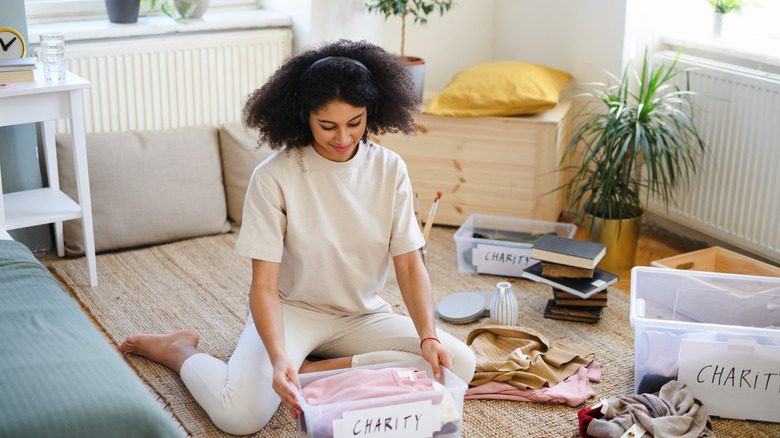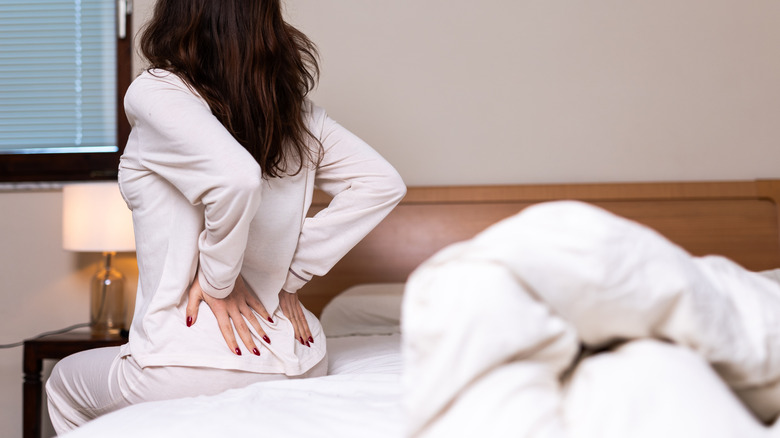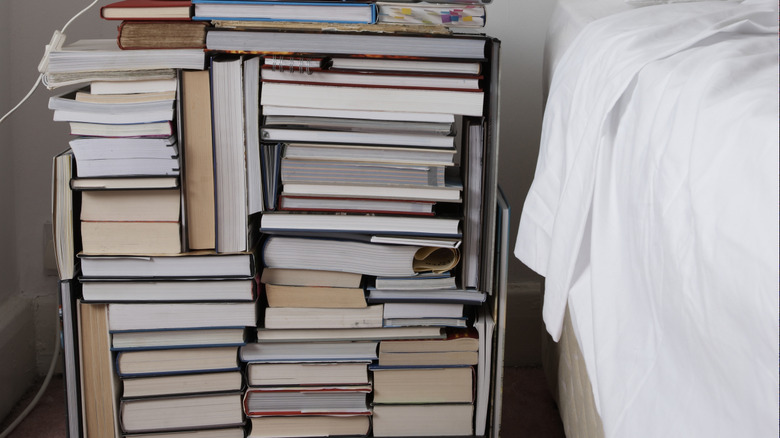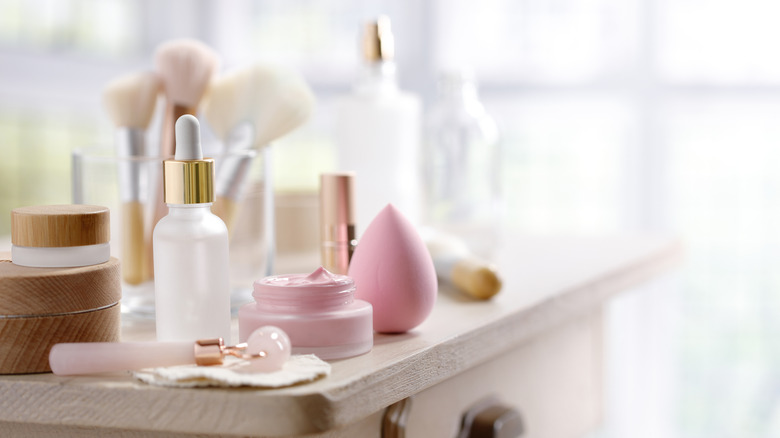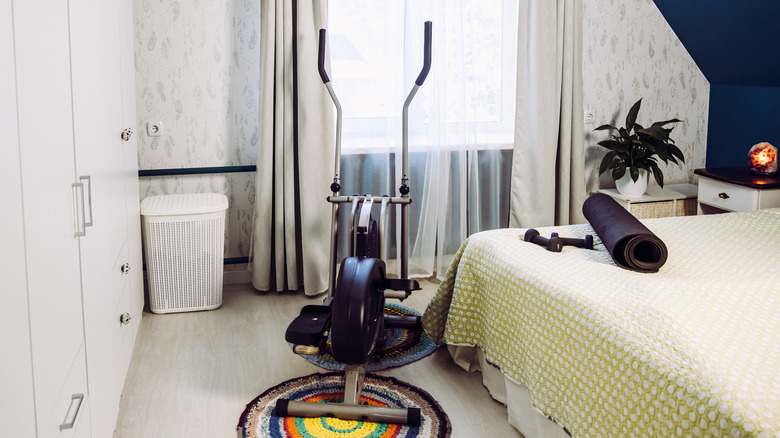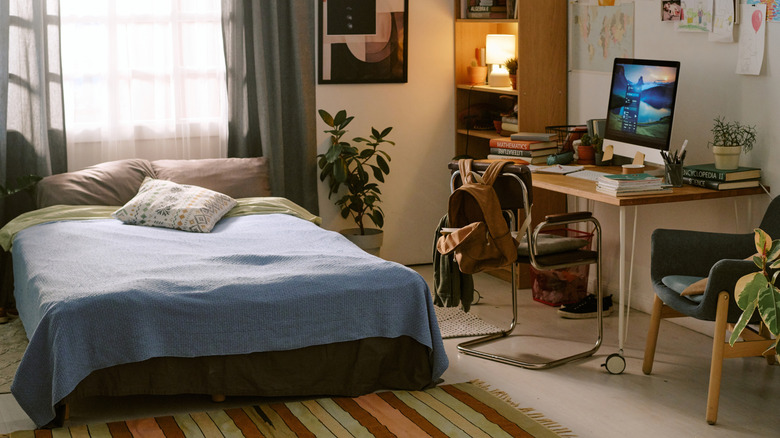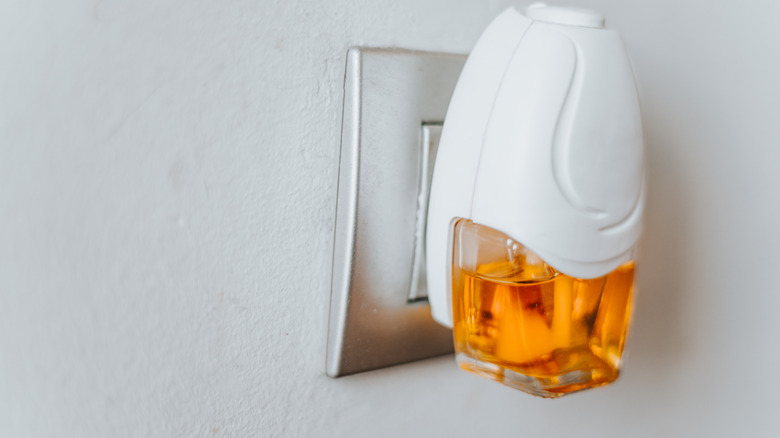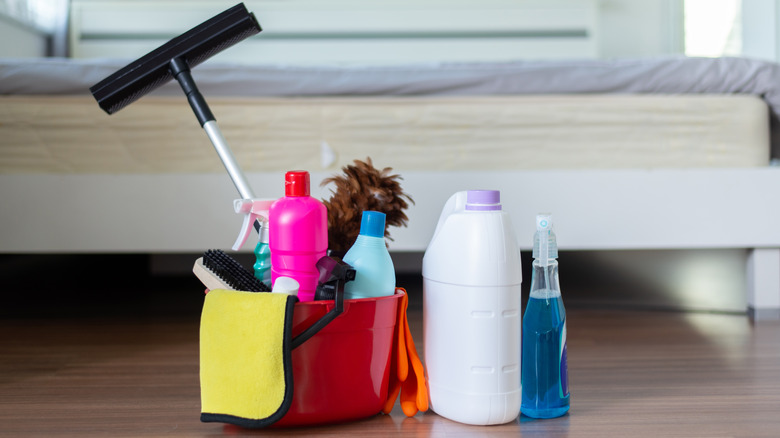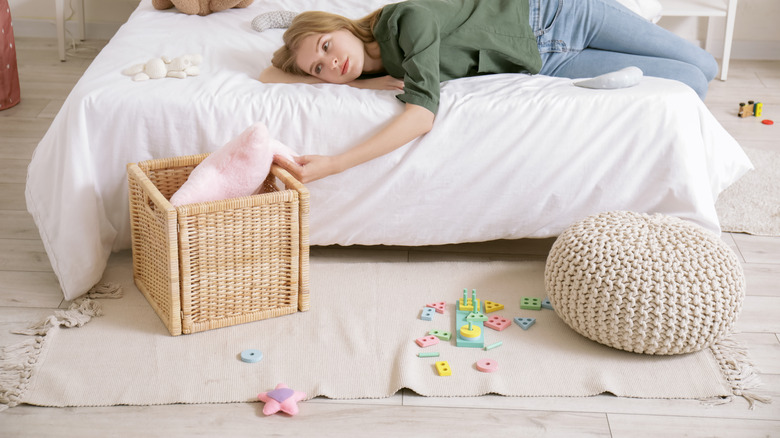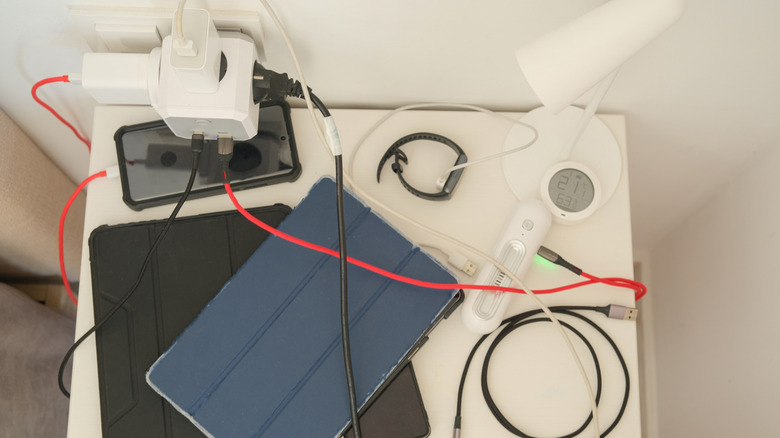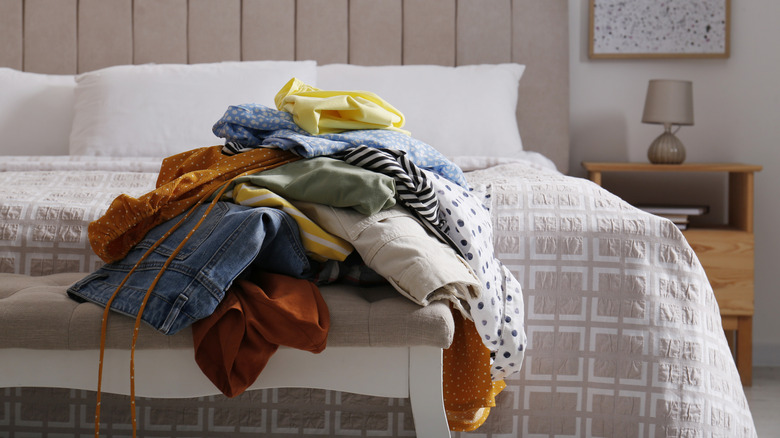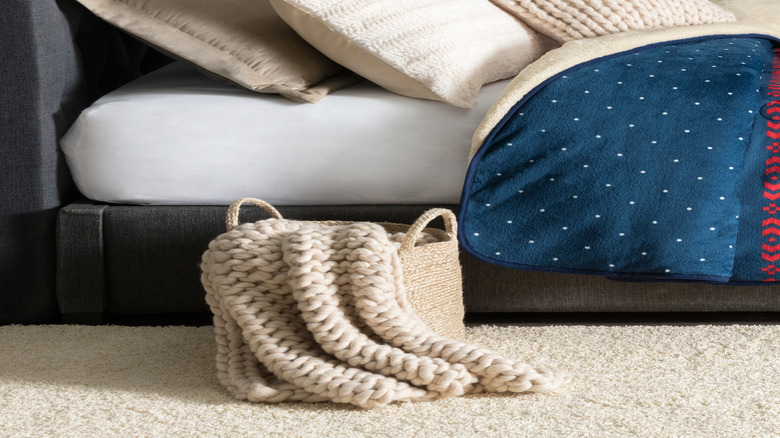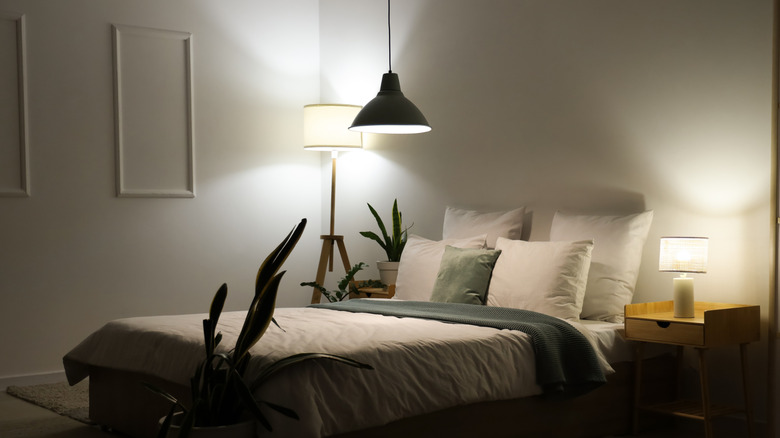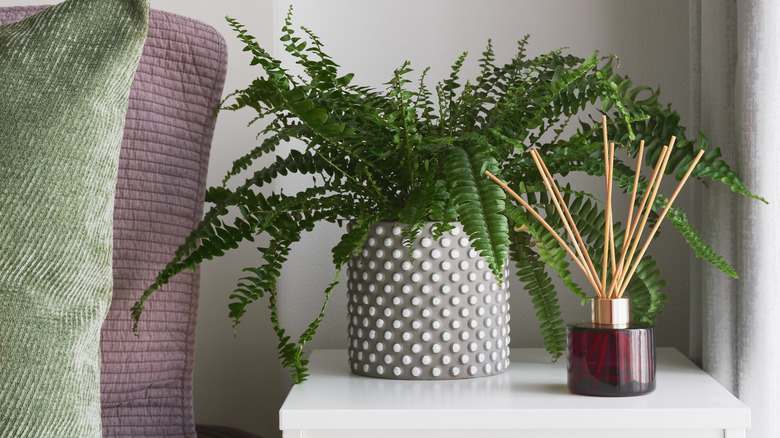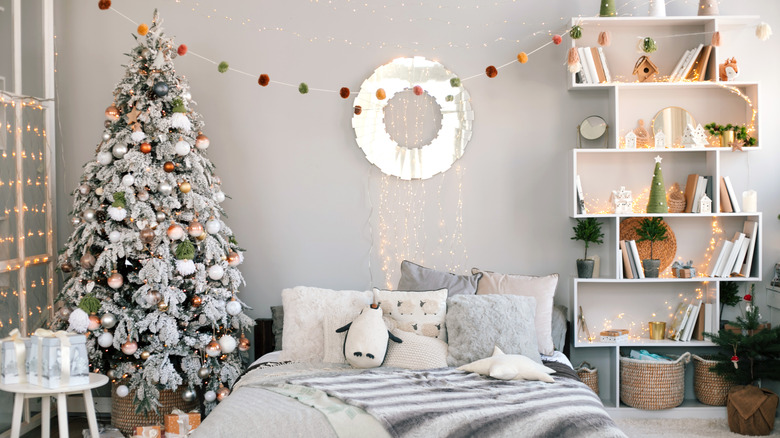16 Bedroom Items You Should Ditch Immediately (And Why!)
Your bedroom should be the most restful space in your home, but many common items quietly work against that goal. From items that trigger FOMO and anxiety, to clutter that sparks guilt, the things we allow in our bedrooms can directly affect how well we sleep and recharge. On top of that, certain furnishings or products release volatile organic compounds (VOCs) that may lower indoor air quality and potentially impact health.
A restful bedroom isn't about achieving picture-perfect minimalism, but about making intentional choices. Start by looking around and asking whether each item contributes to calm or distracts from it. If something stirs up stress, guilt, or unnecessary stimulation, it's worth rethinking its place in your room. Throughout this guide, we'll explore the items to declutter from your bedroom if you're feeling overwhelmed or your health is at risk. We'd also explain healthier alternatives or smarter storage solutions.
Old pillows and mattresses can harbor allergens and harm your posture
As time passes, mattresses and pillows accumulate a buildup of dust mites, dead skin cells, sweat, bacteria, and other allergens that can degrade sleep quality and potentially trigger respiratory irritation. They can also lose structural support, leading to sagging mattresses or compressed foam, and flattened or lumpy pillows, compromising neck and spine alignment.
When mattresses start sagging and showing visible wear, or causing allergies or neck/back pain, replacing them is often the best choice. Look for supportive options that suit your sleep style. Mattress materials like memory foam and latex typically maintain their structure longer than traditional spring mattresses. Pillows should ideally be replaced every one to two years to maintain hygiene and proper head support. Side, back, and stomach sleepers all need different loft (thickness of the pillow) and firmness levels, as well. Old mattresses and pillows can often be donated if still in good condition, or recycled. You can also get mattress protectors or zippered allergen-proof covers to help slow allergen buildup.
Stacks of unread books and magazines add clutter and mental stress
A lot of book lovers separate books they've read from those unread, and while this makes it easy to know which books you haven't gotten to yet, the "to-be-read" shelf can actually trigger anxiety. Instead of inspiring relaxation, they can create a sense of unfinished business whenever you glance at piling materials you haven't gotten around to reading, which could affect your brain's ability to wind down at night. This visual clutter can equally increase stress levels, disrupt focus, and affect proper time management.
To eliminate this stress trigger, keep unread or unused books to a minimum. Limit yourself to important or favorite volumes and store them neatly in a designated spot outside the bedroom. Everything else can be recycled, repurposed, or donated. Research does indicate that bedtime reading can support relaxation and improve sleep quality, but only when done right. To get a better night's sleep, furnish your nightstand with just the one physical book you're reading at the moment, which should ideally have an easygoing theme to keep your nervous system at ease.
Keeping expired or spoiled beauty products can lead to health issues
It's easy to forget half-used skincare bottles, old makeup, or samples tucked into drawers, but expired beauty products don't just create unnecessary clutter; they can also pose health risks. Expired cosmetics may lose their effectiveness and become unsafe to use, potentially leading to skin irritation, rashes, or infection. Even products that are within date, when exposed to temperature changes, can become unstable, leading to the breakdown of preservatives and ultimately reducing shelf life. Natural products are even more susceptible to these changes.
The simplest way to protect both your skin and your peace of mind is to regularly review the beauty products in your bedroom. Toss anything that's expired and separate items by category, if needed, to make it easier to track shelf lives in the future. Move active skincare and cosmetics into a bathroom vanity or cabinet away from direct sunlight. Or better yet, store them in a closet in your bedroom since storage in your bathroom can be affected by fluctuating humidity levels.
Exercise equipment in the bedroom disrupts rest and is bad feng shui
While keeping workout gear close may feel convenient, exercise equipment in the bedroom often does more harm than good. These visible reminders of unfinished tasks, like unused gym gear, may increase anxiety, guilt, or feelings of pressure, making it harder to unwind. Even from a feng shui perspective, active and high-energy items in a resting space create imbalance, which may interfere with restorative sleep. Also, almost every bedroom treadmill eventually turns into an expensive clothes hanger.
Rather than blending your workout and rest areas, designate a different part of your home for exercise. A garage, living room corner, or spare room can serve as a workout zone without intruding on your bedroom's tranquility. For smaller homes, compact equipment that doesn't take up much storage space would be easier to store in somewhere like a living room or hall closet. If calming exercises, like stretching or yoga, are part of your bedtime routine, always store mats out of sight after use.
Workspaces in the bedroom blur rest and work boundaries
Combining your bedroom with a home office may seem practical (just get out of bed and pop into the chair), but it comes at the cost of rest. Mixing work and rest spaces can confuse the brain, making it harder to mentally "switch off" when it's time for bed. The sight of laptops, paperwork, or unfinished tasks can keep your mind in productivity mode when it should be winding down. Over time, this blurred boundary can weaken the mental association between your bedroom and sleep, contributing to poor sleep routines.
The key is to separate rest from productivity. If possible, relocate desks and office supplies to another room where work energy belongs. For small spaces or studio apartments, invest in foldable desks, wall-mounted drop-down tables, or even room dividers to separate work visually and psychologically from your sleeping area. At a minimum, create an end-of-day ritual, such as storing away your electronic devices, to signal the transition from work mode to rest mode.
Synthetic air fresheners and repellents may release harmful VOCs
Despite their convenience, there are a number of hidden risks that synthetic air fresheners and plug-in repellents in your bedroom come with. Some of these products release VOCs, such as formaldehyde, benzene, or phthalates, into the air. VOCs can accumulate more indoors, as compared to outdoors, and may contribute to respiratory irritation, headaches, or allergic reactions. Over time, continuous exposure, even at low levels, may impact overall indoor air quality.
Fortunately, healthier alternatives exist that can improve sleep quality and provide stress relief, without compromising your air quality. Essential oil diffusers can boost fragrance and provide gentle soothing effects while offering mild antimicrobial benefits against dispersed bacteria in indoor air. Beeswax candles provide a gentle scent and can help neutralize some airborne particles as they release negative ions. Even simpler, opening a window for 10 to 15 minutes daily encourages natural ventilation and circulation, allowing stale air to escape.
Conventional cleaning products could add harsh chemicals to the air
Do you keep cleaning products around your bedroom in case of emergencies? While this is great for an always sparkling space, many conventional cleaning products may release VOCs and other harsh chemicals into the air. Chemicals commonly found in these cleaners also irritate the eyes, throat, and lungs. VOCs can linger long after the initial cleaning, reducing indoor air quality. Since the bedroom is meant to be a restorative space, repeated exposure to these chemical residues can undermine its purpose, making it harder to relax and breathe easily.
Avoid storing cleaning products in your bedroom entirely. If you really have to, natural solutions made from vinegar, baking powder, or lemon juice can handle most emergency cleaning tasks without harmful effects. To offset vinegar's smell, a few drops of essential oils can improve the fragrance naturally. And whenever you use cleaning agents with chemicals in the bedroom, always ventilate the space by opening windows or running an air purifier to reduce pollutants.
Activity clutter can disrupt rest
If you're keeping knitting projects, sewing kits, puzzles, Lego sets, or other hobbies in your bedroom, this habit can unintentionally sabotage your rest. For adults, just seeing half-completed crafts can trigger stress or guilt about not finishing them, raising mental tension and making it difficult to relax properly. For children, having toys in their bedroom can blur the line between playtime and bedtime, encouraging late-night play and disrupting sleep times. Left unchecked, these items not only add clutter, but also reinforce habits that make falling and staying asleep more difficult.
The solution is to create intentional zones for hobbies and play elsewhere in the home. A small craft corner in the living room, a designated playroom, or even a neatly organized closet can house these activities without intruding on the bedroom's calming environment. Leaving kids with just their favorite toys in the bedroom could be okay, as long as the toy isn't an overstimulating one that'll get in the way of their rest.
TVs, laptops, and phones affect sleep by interacting with hormones in the body
Blue light from TV, phone, and laptop screens at night suppresses melatonin production, the hormone that signals to your body that it's time to sleep. Reduced melatonin not only delays sleep onset, but can cause you to feel alert when you should be feeling drowsy. Beyond light exposure, watching content that stimulates you can encourage dopamine release, which keeps you awake and excited.
To create a true sleep sanctuary, make your bedroom a device-free zone whenever possible. Move the TV to a living room or den so late-night viewing doesn't creep in and delay your sleep time. As for your phone, keep it outside the bedroom or tucked away in a nightstand if it has to be close by for emergencies. Avoid screen use for at least two hours before bed. Instead, try reading a physical book, journaling, or practicing calming routines. This small adjustment can reset your body's natural sleep rhythms, helping you fall asleep faster and stay asleep longer.
Electronic devices, cords, and cables create clutter
A restful bedroom thrives on simplicity and calm, yet electronic devices and their tangled cables often create the opposite. These appliances are one of the common items you can declutter for a cleaner and tidier home. Beyond the visual clutter, which can heighten stress and make it harder to relax, electronics generate heat, and new ones might also release harmful chemical byproducts through something known as off-gassing. Off-gassing is essentially when the chemicals in these objects break down and release VOCs.
Relocate chargers, power cords, and secondary devices to a dedicated charging station outside the bedroom. This small shift keeps clutter from cables and cords neatly contained, while also keeping out heat and unnecessary electronics from your sleeping area. It does not have to seem out of place in your home's design; there are stylish charging stations that can double as home decor. By streamlining your space in this way, you'll transform your bedroom into a clean, calm sanctuary.
Dirty laundry promotes anxiety
Leaving your dirty clothes unattended is an outdated laundry practice that makes your home feel more cluttered and chaotic. This subtle reminder of chores waiting to be done can signal to your brain that there are unfinished tasks, increasing your guilt, and making it harder to fully relax. Beyond the mental impact, dirty laundry can also contribute to unpleasant odors and even invite pests, which affect the hygiene in your sleep environment.
To maintain a fresh and calming space, relocate laundry baskets to a closet, bathroom, or laundry room. If that's not possible, choose closed baskets with lids to keep clothes out of sight and odors contained. Creating this small boundary between daily chores and your sleep sanctuary makes a big difference — it allows your bedroom to serve its true purpose of being a clean, restful retreat for your mind and body.
Unnecessary throw pillows create clutter instead of comfort
It's not news that throw pillows are the one budget-friendly item that makes your living room so much cozier. It may look stylish in the store or on Pinterest boards, but in reality, too many of them can overwhelm your bed. Plus, you'll probably just toss most of them on the floor when you want to sleep, anyway. What's meant to add charm and comfort often ends up creating unnecessary clutter. Sleeping on a bed with multiple pillows can also result in unwanted body aches in areas like your neck and back.
A simpler approach works better. Keep just a few pillows that serve a real purpose. Extras can be stored neatly in a linen storage bag or in storage benches at the foot of the bed. If you find yourself buried in more pillows than you'll ever use, consider donating or recycling them. A bed with fewer, intentional pillows not only looks inviting, but also makes it easier to maintain a clean, restful environment.
Cool-toned bulbs can interfere with melatonin production and don't set a cozy mood
The type of lighting in your bedroom has a bigger impact on your rest than you may realize. Many modern LED bulbs, especially those with cool or blue-toned light, can disrupt melatonin production (just like how screen time can). Exposure to harsh, bright light bulbs at bedtime tricks your brain into thinking it's still daytime, which can make it harder to fall asleep and stay asleep.
The solution involves choosing lighting that works with your natural rhythms instead of against them. Swap out cool-toned bulbs for warm, dimmable ones that create a soft, amber glow. Smart bulbs that shift color temperature in the evening are great options. You can even layer your lighting, using floor or table lamps for soft, indirect light, instead of a single harsh ceiling fixture. This small change in your lighting choices can transform your bedroom from a bright, overstimulating space into a calming sanctuary that encourages deeper, more restorative sleep.
Mold-prone or humidity-loving houseplants can affect indoor air quality
Houseplants can add life and personality to a bedroom, but not all varieties are equally suited for this space. Certain plants, especially ferns and other humidity-loving species, tend to thrive in damp conditions and are therefore susceptible to mold. Mold spores, when released into the air, can aggravate allergies, irritate your lungs, and impact overall air quality in the room. Instead of creating a calm and restful atmosphere, these plants can introduce a subtle source of discomfort or even respiratory problems over time.
The good news is that you don't have to give up greenery entirely. By choosing low-maintenance and mold-resistant plants, you can enjoy the benefits of a touch of nature without the drawbacks. Snake plants are excellent alternatives as they require minimal watering, thrive in bedroom conditions, and are far less likely to harbor mold. Regularly checking the soil and avoiding overwatering also helps reduce moisture buildup, further preventing mold growth.
Paper clutter creates mental noise
Stacks of unsorted papers quickly turn a restful bedroom into a stressful environment. Instead of functioning as a sanctuary, the space begins to feel like an extension of your office or daily to-do list. Each glance at the pile can trigger guilt or a sense of unfinished business, making it harder to relax and unwind. Beyond the stress factor, paper clutter also attracts dust, which can aggravate allergies.
The solution is to give every paper a dedicated drop zone away from your bedroom. Sort mail as soon as it comes in, moving important items to a home office or filing area, and recycling or shredding the rest. Digitizing documents is another effective strategy; it reduces physical clutter, while ensuring important records are safely stored and easily accessible. Ideally, your nightstand should be void of unnecessary papers and books.
Excess décor items can make your bedroom look too busy
Décor can personalize a bedroom, but too much of it can have the opposite effect. Instead of a soothing environment to enhance sleep, the room can feel busy and overstimulating. Cluttered environments can increase stress and interfere with restorative rest. In addition, excessive objects collect dust and add to cleaning chores.
Choose a small number of décor items that are meaningful, functional, or aligned with the atmosphere you want to cultivate. For example, a single piece of artwork, a plant in a simple pot, or one or two photos can still make the room feel warm without overwhelming the space. Store or rotate other decorative items seasonally so the bedroom always feels fresh, yet uncluttered. By paring down to essentials, you create a serene environment that enhances relaxation and helps maintain the bedroom's true purpose: to restore your energy and promote restful sleep.
